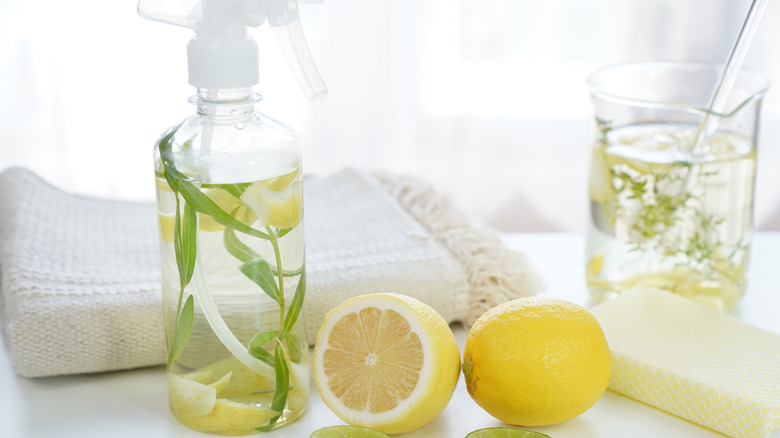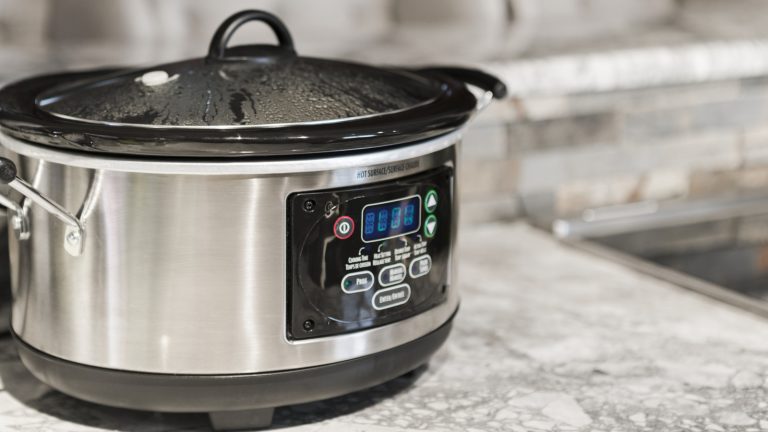If you followed this flour tip for the crispiest fried fish and ended up with a delicious dinner, you undoubtedly also ended up with a stinky kitchen. Fish, garlic, and even perfectly roasted asparagus can make your cooking space malodorous, long after the dishes have been washed and put away. But there’s an easy trick for getting rid of those nasty cooking smells: Simmer a pot filled with a bit of vinegar (vinegar can also be used to clean the stove). Food Republic spoke to Ryan Knoll, cleaning expert and founder of Tidy Casa, a professional home cleaning service based in sunny Phoenix and Tucson, Arizona, and he agreed: “Straight vinegar gets the job done.”
But he did admit that straight vinegar isn’t the most relaxing thing to smell after a long, smoky cook session in the kitchen either. “Where’s the lavender? Am I right?” he joked. That’s why he recommended “tossing in citrus peels, like lemon or orange, a couple of cinnamon sticks, or fresh rosemary” into the vinegar as well, to add a more pleasant scent to the acidity. “You still get the cleaning power, but with a scent that says ‘cozy kitchen’ instead of ‘science lab.'”
Why vinegar simmer pots work to remove kitchen odors
There’s a science, of course, behind why simmering vinegar on your stovetop puts a stop to lingering smells. “White vinegar is acetic acid, and it works by chemically neutralizing alkaline odor molecules in the air,” Ryan Knoll explained. He told us that, unlike air fresheners, which only mask the scents, “Vinegar actually changes the molecular structure of odor compounds, so your nose stops detecting them.”
But why simmer the vinegar? Why not just spritz your kitchen with vinegar from a spray bottle? Or just use it to wipe down the stove area? “When simmered,” Knoll said, “the vinegar vapor disperses through the air, making it more effective than just wiping down surfaces.” When you spray from a bottle, too, the vinegar does hit the air, but then it comes down too quickly, and in too limited a focus, to be effective. Simmering turns the vinegar into vapor or steam, which can work its way around your kitchen, the way the fish odors did when your tilapia was cooking. “Basically,” Knoll finished, “the acid gets in the air and breaks down those compounds.”






